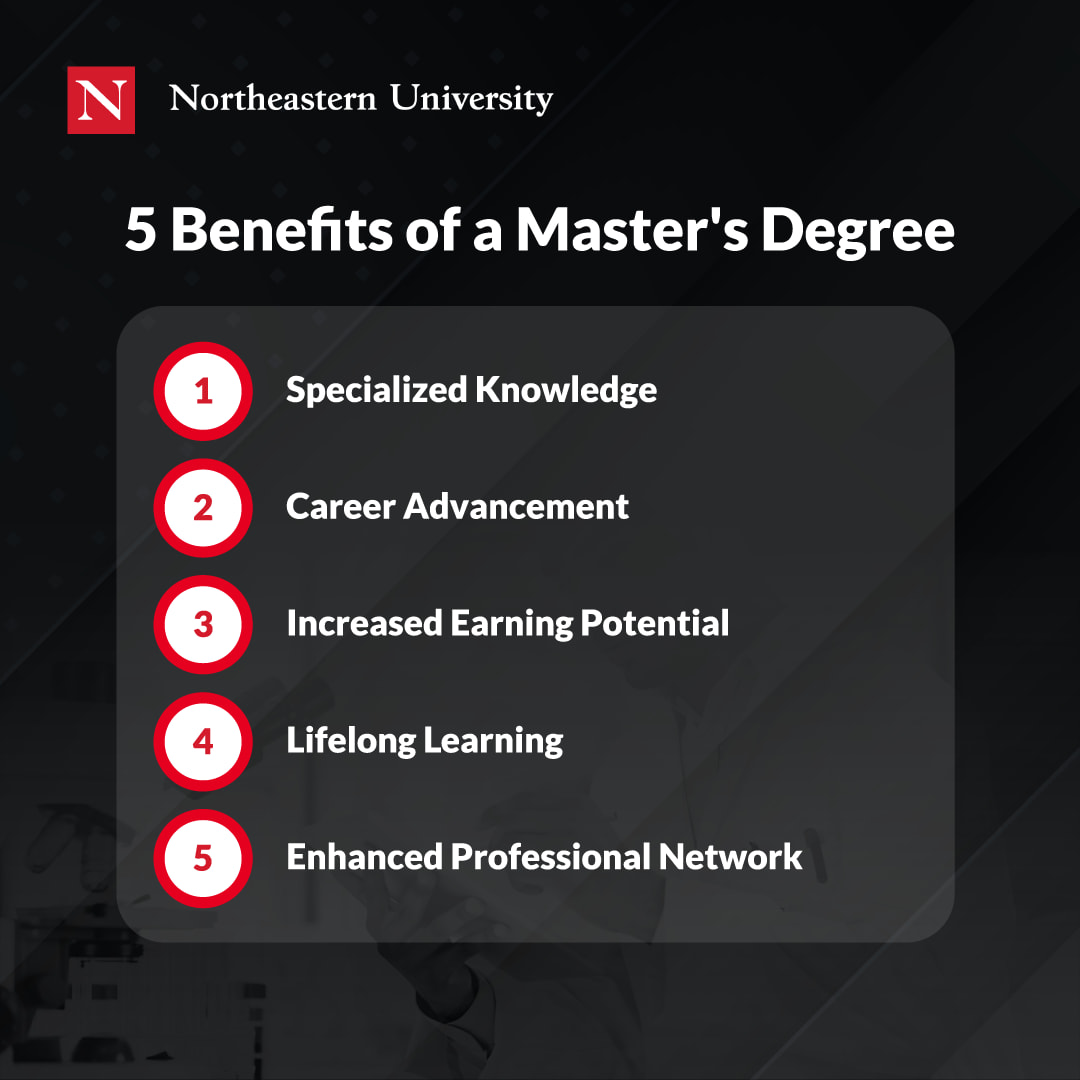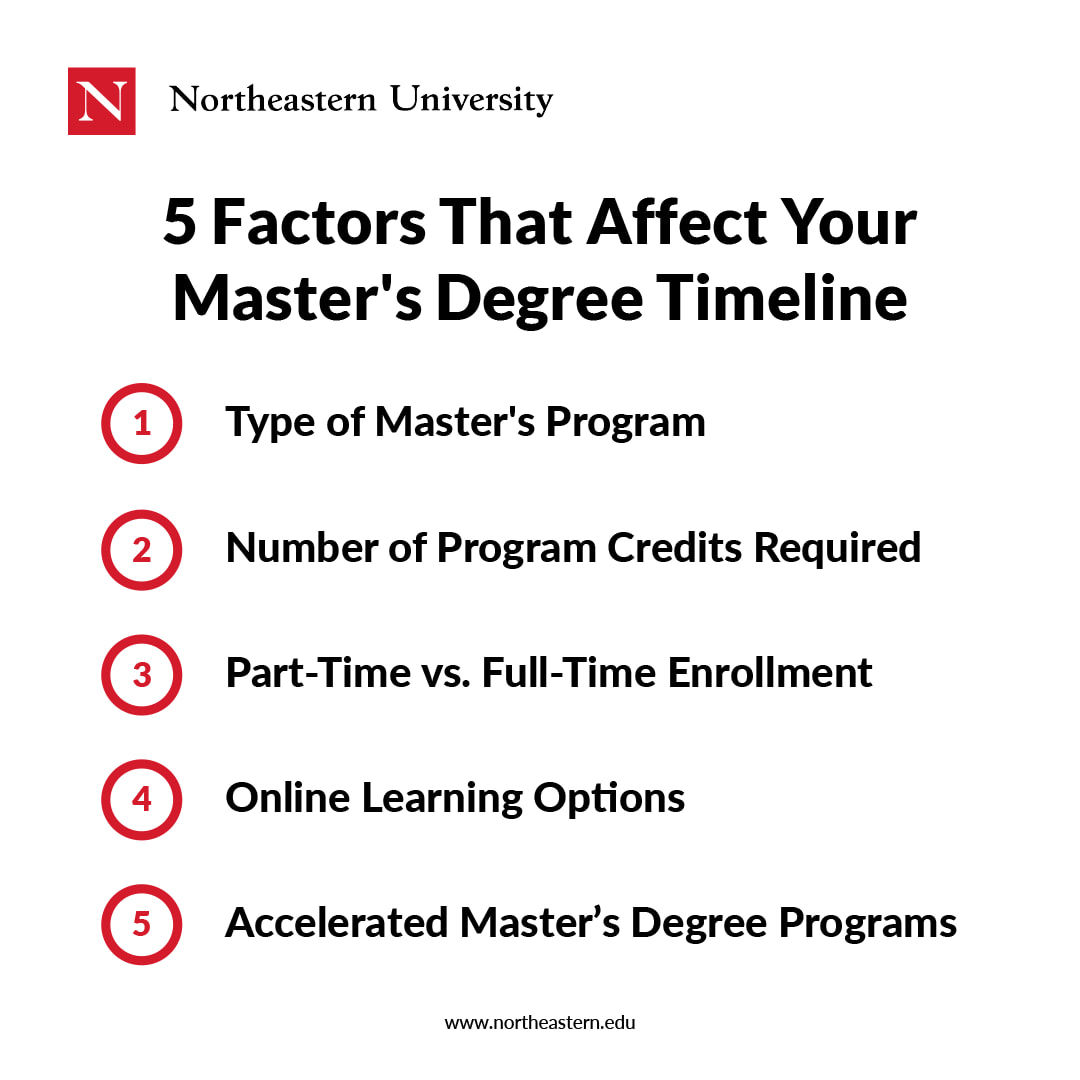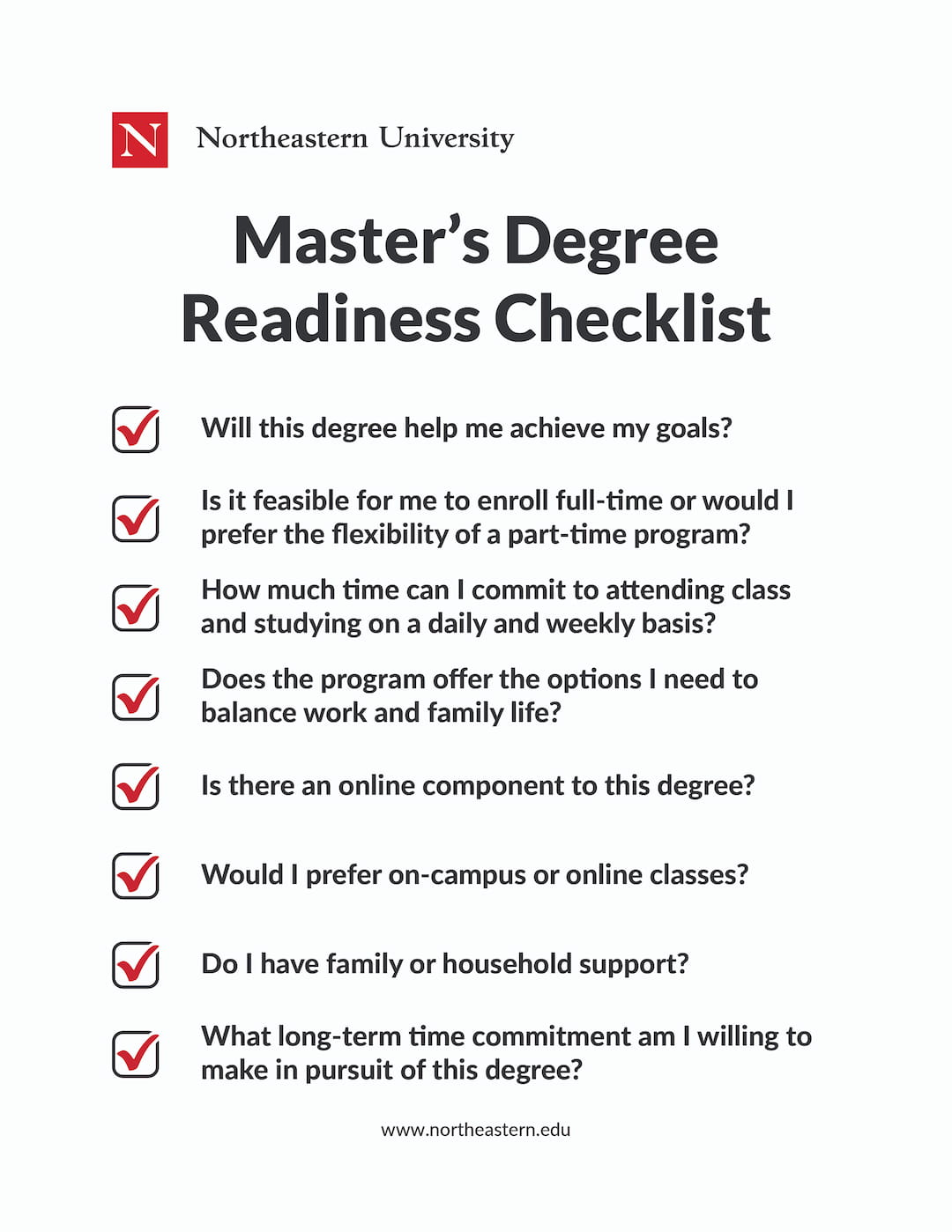
Research has shown that having a graduate degree can give you a significant advantage in the marketplace. By earning your master’s degree, you can compete for jobs in in-demand fields and meet baseline educational requirements for certain careers such as social work and school administration. A graduate education not only provides the opportunity for an annual wage premium of at least $12,000 over a bachelor’s degree, but it allows you to hone critical thinking skills, obtain specialized knowledge, and advance your career.
Despite common misconceptions, returning to school to earn a master’s degree doesn’t mean quitting your job or otherwise disrupting your home life. You can return to school and finish your master’s degree sooner than you might think due to the myriad of enrollment options offered by many universities. The exact time it will take to complete your master’s degree, however, will depend on a variety of factors.
Is Getting A Master’s Degree Worth It?
Another big question that you may need to answer before deciding to get a master’s degree is whether it’s worth pursuing in the first place.
More and more professionals are realizing the benefits of a master’s degree. According to Statista, a total of 843,450 students were awarded a master’s degree in the United States between 2019 and 2020. In fact, the number is forecasted to increase to 983,000 students in 2030 and 2031.

By pursuing a master’s degree, you are increasing your level of education and salary potential and opening yourself to a wide range of career opportunities as you achieve your personal goals.
How Long Does it Take to Earn a Master’s Degree?
On average, a master’s degree takes 1.5 to 2 years for full-time students to complete. There are many factors, however, that may increase or decrease the exact length of time from enrollment to graduation. For instance, students who take on a heavy course load may finish some master’s degree programs in as little as seven months, while part-time students in programs with many credit hours can take as long as seven years to earn their master’s degrees.
Here are some factors you should consider when determining how long it will take you to earn your master’s degree.

Number of Program Credits Required
The first factor that will determine how quickly you can earn your master’s degree is the number of credit hours required to complete the program’s curriculum. Simply put, the more credit hours required, the longer the program will take. While the number of required credits ranges by degree and institution, most master’s degrees require the completion of 30 to 60 credit hours.
This number can have a significant impact on your length of study. A 30-credit hour Master of Science in Accounting program, for example, can be completed as quickly as seven months, while a 60-credit hour Master of Business Administration program will take at least two years, depending on your enrollment status and the number of courses you take each semester.
Particular program requirements can also extend the length of your graduate education. Programs that require a thesis, lab work, or independent research typically take more time to complete than programs without these types of requirements.
Part-Time vs. Full-Time Enrollment
Some universities allow students to choose from full-time or part-time enrollment options, giving them the flexibility to decide how quickly they want to finish their master’s degrees. Keep in mind, the more classes you take per semester, the more quickly you will finish.
It’s often necessary, however, for working professionals to enroll in a part-time program when pursuing graduate-level coursework. Completing one class at a time allows students to better manage the time demands of work, family, and other commitments. When deciding between a part- or full-time program, remember that taking courses part-time will significantly increase the overall time it will take to complete your degree. Northeastern allows master’s degree students up to seven years from the first term of enrollment to complete their program.
What constitutes full-time versus part-time enrollment is defined by each individual institution, so be sure to examine your prospective university’s policy. Northeastern graduate programs, for example, define full-time students as individuals enrolled in at least nine (and up to 16) credit hours per quarter. Many of Northeastern’s programs also allow students to enroll part-time, requiring that students take at least three credit hours per quarter to maintain their enrollment status.
Online Learning Options
Most full-time master’s programs expect students to complete their degree program requirements within three years, but as mentioned, traditional full-time enrollment might not be possible for everyone. Fortunately, many colleges and universities now offer a variety of online or hybrid learning options.
These graduate programs can vary in format; some may be offered 100 percent online, while others combine traditional on-campus learning with an online component. Among the other benefits of online learning, these “non-traditional” learning formats give students increased flexibility in where, how, and when they choose to complete their coursework.
For students who aren’t sure they have enough time to successfully complete graduate-level coursework on top of their existing commitments, these program formats can be a great option. Some students find that the flexibility of online courses allows them to take on a heavier course load than what would’ve been possible if in-person attendance was required. Completing at least some coursework online can help students speed up their time to degree completion.
Accelerated Master’s Degree Programs
If your goal is to earn your master’s degree as quickly as possible, an accelerated master’s degree program might be your best option. An accelerated master’s degree program allows you to receive dual course credit for coursework completed as an undergraduate, meaning a single class can count as credit toward both your undergraduate and master’s degree.
Accelerated programs work well for undergraduate students who already have a flexible schedule, prefer full-time enrollment, and want to complete their master’s degree quickly. Some programs, like Northeastern’s PlusOne Accelerated Masters, can help you finish your degrees sooner. Even though undergraduates have a limited number of dual credits which can be applied to a master’s degree, accelerated degree programs can shorten graduate study by an entire academic year.
Master’s Degree Readiness Checklist
As you consider how long it will take you to earn your master’s degree, ask yourself these questions to determine if you’re ready to move forward:

- Will this degree help me achieve my goal of (fill-in-your-goal-here)?
- Is it feasible for me to enroll full-time? Would I prefer the flexibility of a part-time program?
- How much time can I commit to attending class and studying on a daily and weekly basis?
- Does the program offer the options I need to balance work and family life?
- Is there an online component to this degree?
- Would I prefer on-campus or online classes?
- Do I have family or household support?
- What long-term time commitment am I willing to make in pursuit of this degree?
While it’s unnecessary to have every question answered before deciding, this checklist will help narrow down the program characteristics that are most important to you.
How Hard Is It To Get A Master’s Degree?
As stated above, there are several questions you can ask yourself to determine if getting a master’s degree aligns with your career goals and aspirations. One of the reasons why professionals might hesitate to pursue a master’s degree is the notion that it will be too hard to get it.
Graduate programs are challenging, so knowing what to expect is essential. After all, pursuing a master’s degree will involve high volumes of reading, writing, and researching in your field of study.
If you are passionate about what you are studying and constantly focus on your goal, pursuing a master’s degree will be a worthwhile experience.
What If I’m Not Ready for a Master’s Degree?
After answering the questions above, you may not feel quite ready to pursue your master’s degree. But what if you could obtain a competitive edge in your chosen field without having to commit to a master’s degree? The good news is: you can—by earning a graduate certificate.
Graduate certificates are an effective way to demonstrate your expertise in a particular field without enrolling in a traditional master’s degree program. Some colleges and universities, including Northeastern, offer a set number of courses as part of a stand-alone certificate program, while other institutions confer a graduate certificate once you’ve completed a portion of your master’s degree.
Northeastern’s graduate certificate programs range from six months to three years in length, depending on the number of credit hours required. The coursework completed in these graduate certificate programs can often be applied toward a related master’s degree, should you choose to pursue one later on.
Making Your Next Move
Remember, you can complete your master’s degree quickly even if work and family commitments are competing for your time. Colleges and universities have program options that cater to working adults who want to take the next step in their career or even pursue a new one. Your graduate degree can be just around the corner if you take advantage of scheduling options available at your institution of choice.
If you’re considering getting your master’s degree, check out our other helpful Grad School Advice articles, including:





Related Articles
Why Earn a Professional Doctoral Degree?
5 Tips to Get the Most out of Grad School
Is Earning a Graduate Certificate Worth It?